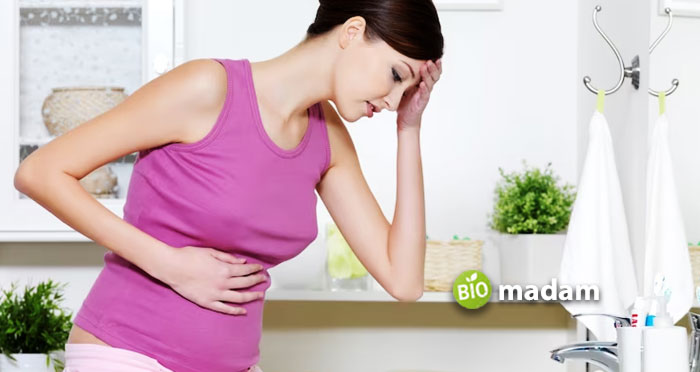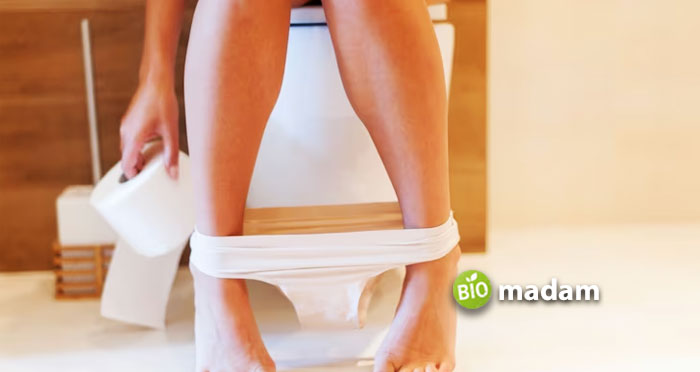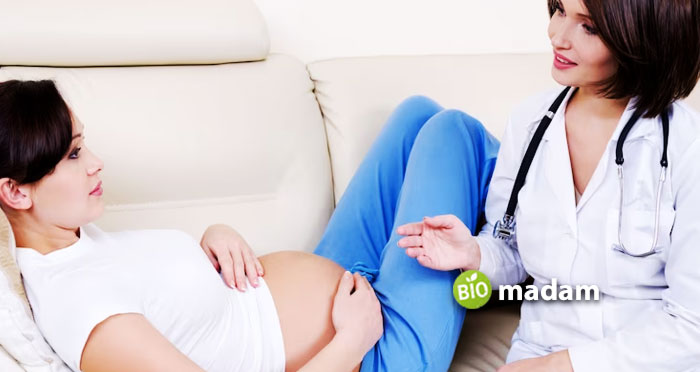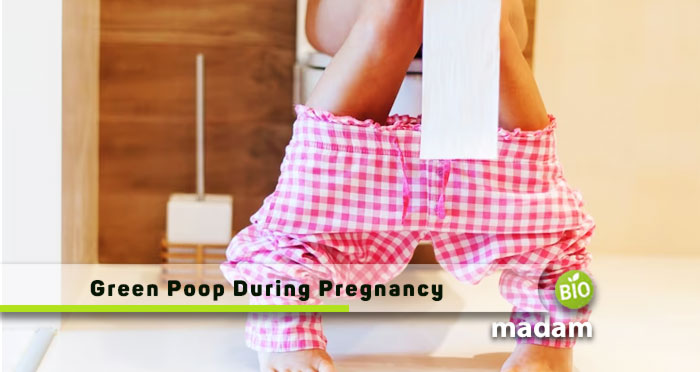During pregnancy, a woman’s body undergoes significant changes. From physical changes to emotional fluctuations, it’s an experience that can be both exciting and overwhelming. Among the many changes that can occur during pregnancy, changes in bowel movements are not uncommon. One such change that can be surprising is the occurrence of green poop. While it may sound alarming, green poop during pregnancy is typically not a cause for concern.
This topic will help you explore the reasons behind green poop during pregnancy, when it’s normal, and when to seek medical attention. By the end of this article, you’ll have a better understanding of what green poop during pregnancy means and how to manage it effectively.
Why do Pregnant Women Experience Changes in Bowel Movements?
Pregnancy causes changes in hormone levels, particularly estrogen and progesterone, which can slow down digestion and cause constipation. Additionally, as the uterus grows, it can put pressure on the intestines, making it more difficult to pass stool.
Pregnant women may also experience changes in their bowel movements due to dietary factors. For example, many women experience food aversions or cravings during pregnancy, which can cause them to eat more or less of certain foods than they normally would. This can affect digestion and bowel movements.
Furthermore, taking prenatal vitamins and other supplements can cause changes in bowel movements, particularly if they contain iron. Iron supplements are commonly prescribed during pregnancy to prevent anemia, but they can cause constipation and dark green stools. In some cases, changes in bowel movements during pregnancy can be a sign of an underlying issue, such as an infection or inflammatory bowel disease.
Poop-Related Problems During Pregnancy
Some common poop-related problems that women face during pregnancy are:
Constipation
There’s a huge change in a woman’s hormonal level during pregnancy, particularly increased levels of progesterone. It causes the relaxation of digestive tract muscles, slowing down the passage of food and waste. In addition to this, as the uterus grows, it puts pressure on the small and large intestines, which can further slow digestion. These factors lead to more difficult and less frequent bowel movements, resulting in constipation.
Constipation during pregnancy can cause discomfort, bloating, and abdominal pain. In some cases, it can even lead to hemorrhoids or anal fissures. Pregnant women need to talk to their healthcare provider about safe ways to manage constipation. Sometimes, home remedies are a way out of such conditions.
However, these ladies are told to avoid taking laxatives or other over-the-counter medications without first consulting their healthcare provider, as some of these substances may be unsafe for use. In severe cases, a healthcare provider may recommend a prescription medication to help manage constipation.

Hemorrhoids
Many pregnant women are seen to experience hemorrhoids during their journey. They are swollen veins in the rectum or anus that can be caused by increased pressure in the pelvic region due to the growing uterus. Hemorrhoids can be uncomfortable and even painful, but they are generally not serious medical conditions.
Some common symptoms of this condition include:
- Pain or discomfort during bowel movements
- Itching or irritation around the anus
- Swelling or a lump around the anus
- Bleeding during bowel movements
To help prevent this issue while pregnant, it is important to stay hydrated and eat a high-fiber diet to help prevent constipation. Regular exercise can also help improve circulation and prevent constipation. If you do develop hemorrhoids, there are various treatments available, such as topical creams, suppositories, or even surgery in severe cases.
It’s critical to note that if you experience any bleeding during pregnancy, it’s always best to consult with your health practitioner to rule out any serious conditions. Hemorrhoids are a common and treatable condition, but other conditions such as anal fissures or infections can have similar signs and symptoms and require different treatment.
Unusual Poop Colors
During pregnancy, changes in hormone levels and dietary habits can cause unusual poop colors in some women. While it is generally considered normal for pregnant women to have changed poop color, certain colors may indicate an underlying health issue.
Green poop is a common occurrence in the gestation period and is often caused by dietary changes, iron supplements, or any disease or infection. Black or tarry stools may indicate bleeding in the upper gastrointestinal tract, which requires medical attention. Similarly, bright red blood in the stool can be a sign of hemorrhoids, which is a common occurrence during pregnancy due to increased pressure on the rectal area. Yellow or pale-colored stools can indicate problems with the liver or bile ducts and require immediate medical attention. Yet again, making dietary changes and maintaining good hydration can help manage unusual poop colors in pregnant ladies.
What are the Causes of Green Poop?
There are several reasons why a pregnant woman may experience green poop. Below are some of the prevalent causes:
Dietary Changes
Consuming a diet high in green leafy vegetables like spinach, kale, or broccoli can cause your stool to turn green. These vegetables are high in chlorophyll, a green pigment that can be passed through the digestive system and affect the color of your stool. Additionally, taking iron supplements can also lead to green poop.
Hormonal Changes
Pregnancy is a time of significant hormonal changes, which can affect various bodily functions, including digestion. Changes in hormone levels can slow down the digestive system, causing food to move more slowly through the body. This can result in a change in the color of your stool.
Bile Mixing with Stool
Bile is a digestive fluid produced in the liver that helps break down fats in the small intestine. When it mixes with stool, it can give it a greenish color. Yet again, the hormonal alterations during the entire pregnancy journey cause the digestive system to slow down, allowing more time for bile to mix with stool and change its color.
Food Coloring
Chemicals known as food coloring and dyes are often used to enhance the appearance of certain foods. For instance, if you’ve consumed green soda or cake with green frosting (especially on St. Patrick’s Day), you might have noticed that your stool turned green. The green hue in some food dyes comes from blue-green seaweed called spirulina, while others are synthetic chemicals. Regardless of the type of green food dye you consume, it can result in green poop. Similarly, other food colorings such as black, purple, and blue can also produce green poop due to their partial breakdown during digestion.
Medications
Some medications taken during pregnancy can change the color of your poop. Here are some examples:
Iron Supplements
To avoid anemia and its complications in bringing anxiety, doctors often recommend iron supplements for pregnant women. However, they can also cause your poop to turn dark green or even black. This is because iron can be difficult for your body to absorb and can accumulate in the intestines, where it can react with other substances to form a darker color.
Prenatal Vitamins
Prenatal vitamins contain a variety of vitamins and minerals, including iron, which can also lead to changes in the color of your poop. Additionally, some prenatal vitamins contain high doses of certain B vitamins, resulting in bright yellow urine and lighter-colored poop.
Antibiotics
Antibiotics are sometimes prescribed during pregnancy to treat infections, but it is essential to adjust the dose as taking these medicines can cause constipation in pregnant ladies. They can affect the color of your poop by altering the balance of bacteria in your gut. This can cause your poop to turn green, yellow, or even gray.

Infections
Most women experience different infections at multiple stages in a pregnancy that may cause their poop to be green-colored. Here are some examples of the conditions:
Gastrointestinal Infections
This type of infection such as salmonella, E. coli, and norovirus can cause green stool during pregnancy. These infections can lead to diarrhea letting the food move too quickly through the intestines and preventing bile (a digestive fluid that helps break down fats) from being properly absorbed. As a result, stool may appear green due to the presence of undigested bile.
C. difficile Infection
C. difficile (Clostridioides difficile) is a type of bacteria that can cause severe diarrhea and inflammation of the colon. One of the symptoms of a C. difficile infection is green diarrhea.
Parasitic Infections
Parasitic infections such as giardiasis and cryptosporidiosis can also cause green poop during pregnancy. These infections can lead to diarrhea, which can cause bile to move too quickly through the intestines, resulting in a green stool.
If you’re experiencing green poop in your gestational period and suspect you may have an infection, it’s important to see your doctor right away. They can perform tests to determine the cause of your symptoms and provide appropriate treatment.
Is It Normal to Have Green Poop During Pregnancy?
It is normal to have green stool in this state as long as it is not accompanied by other concerning symptoms such as severe abdominal pain or bleeding. Green stool can be caused by a variety of factors, including dietary changes, medication use, and infections. Some pregnant women may also experience changes in bowel movements due to hormonal fluctuations or the pressure of the growing uterus on the digestive tract.
Is Green Poop a Sign of Early Pregnancy?
Green poop is not typically considered a sign of early pregnancy. While pregnancy can cause changes in bowel movements, green poop is not a reliable indicator of pregnancy on its own. Some women may experience changes in bowel movements during early pregnancy, such as constipation or diarrhea, but these changes are not necessarily followed by green stool. Additionally, many other factors can result in green poop, such as diet, medication use, and infections.
If you suspect you may be pregnant, it’s best to look for other common signs of it, such as a missed period, breast tenderness, and fatigue, and to take a pregnancy test to confirm your suspicions. If you have concerns about your bowel movements or any other symptoms during pregnancy, it’s better to consult a gynecologist.
When to be concerned about Green Poop during Pregnancy?
While green poop during pregnancy is often harmless and caused by dietary factors, medication use, or hormonal changes, there are some instances where it may be a cause for concern. Here are some situations when you should consider speaking with your healthcare provider:
- Persistent Green Poop: If you are consistently having green stool, or if it lasts for several days or longer, it may be a sign of an underlying issue and should be evaluated by your general physician or gynecologist.
- Other Symptoms: If you experience other symptoms along with green poop, such as abdominal pain, fever, or diarrhea, it may be a sign of an infection or other health issue and you should speak with your healthcare provider.
- Blood in Stool: If you notice blood in your stool, it may be a sign of a more serious issue such as a gastrointestinal bleed and you should seek medical attention right away.
- Unusual Texture or Smell: If your stool has an unusual texture or odor, or if it is difficult to pass, it may be a sign of a digestive issue and you should speak with your healthcare provider.
How to Manage Green Poop during Pregnancy?
There are a few things you can do to efficiently manage a different-colored poop while pregnant. These are:
- Increase your Water Intake: Staying hydrated can help soften your stools and make them easier to pass.
- Monitor your Symptoms: If you’re not experiencing any other symptoms, green poop is likely nothing to worry about. However, if you’re experiencing other symptoms such as diarrhea, vomiting, or fever, it’s important to talk to your doctor.
- Adjust your Diet: If you’re eating a lot of green, leafy vegetables or taking iron supplements, it may help to adjust your diet. You can also talk to your doctor about alternatives to iron supplements.
- Avoid Trigger Foods: If you notice that certain foods seem to cause green poop or other digestive issues, try to avoid them.
- Stay Active: Regular exercise can help stimulate digestion and regulate bowel movements.
- Talk to your Doctor: If you’re experiencing green poop along with other symptoms, it’s important to speak with your healthcare provider. They may recommend additional treatments or tests to rule out any underlying health issues.

When to Call the Doctor?
Green poop during pregnancy is usually nothing to worry about and will typically resolve on its own. However, it’s important to pay attention to any other symptoms you may be experiencing. If you notice any of the following along with green poop, it’s best to contact your healthcare provider right away:
- Diarrhea lasting longer than 3 days
- Stomach pain
- Cramping
- Bloating
- Gassiness
- Unusually smelly gas
- Back pain
- Pain in the upper right abdomen
- Pain in the shoulder area
- Fever
If you’re experiencing changes in poop color, it’s important to let your doctor know if you suspect blood in your stool. Bright red blood in your stool is usually a result of hemorrhoids and not a major concern, but dark red to black blood or stool that resembles coffee grounds could indicate bleeding in your digestive tract and requires immediate medical attention.
Conclusion
Green poop during pregnancy can be caused by a variety of factors such as dietary changes, medication, infections, and hormonal shifts. While it’s usually not a cause for concern, it’s important to pay attention to any concurrent symptoms and discuss them with your doctor. By staying hydrated, eating a diet rich in macro and micronutrients, and staying active, you can manage green poop and other digestive issues coming your way. Remember, taking care of your digestive health is an important part of maintaining overall wellness during this special time in your life.

Anna has completed her degree in Pharmacy from the University of Hawaii. She is serving as a research assistant in a pharmaceutical company. She had a great interest in writing blogs, traveling to different parts of the US, and trying delicious recipes in her spare time.

